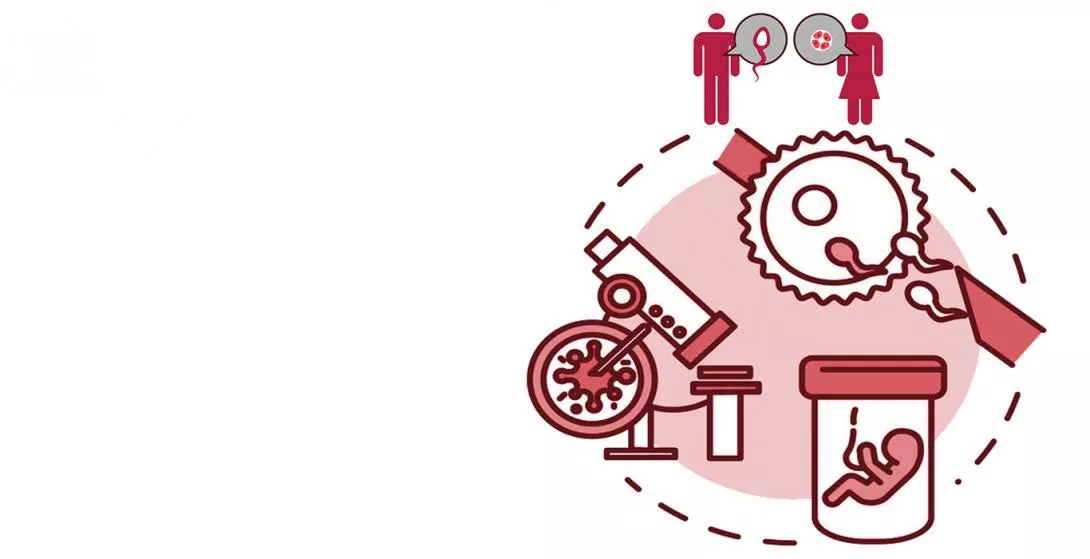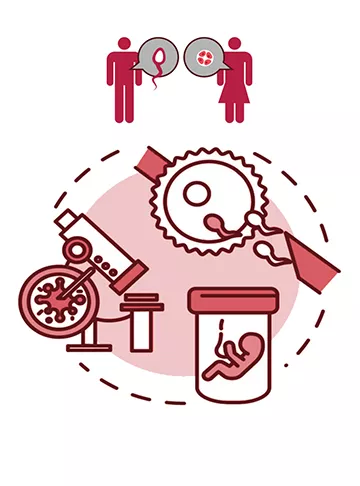As you start your journey towards fertility treatment, it's natural to have questions and concerns. We will address the IVF FAQs to provide you with clarity and confidence as you consider this transformative process.
What is IVF?
In Vitro Fertilization (IVF) is a fertility treatment where eggs are fertilized by sperm outside the body, and the resulting embryos are implanted in the uterus for pregnancy.
Who is IVF for?
IVF can be helpful for couples with blocked fallopian tubes, male infertility, ovulation issues, or those using egg or sperm donation.
What are the steps involved in IVF?
It typically involves ovarian stimulation with medication, egg retrieval, fertilization, embryo development, and embryo transfer.
What is the success rate of IVF?
Success rates vary based on age and individual factors, but average around 30-40% per cycle for achieving a live birth.
How many cycles of IVF will I need?
The number of cycles varies, some couples achieve success in the first round, while others may need multiple attempts.
Is IVF painful?
Some medications and procedures might cause mild discomfort, but pain management options are available.
What are the side effects of IVF?
Potential side effects include bloating, mood swings, and ovarian hyperstimulation syndrome (OHSS), though most are manageable.
How much does IVF cost?
IVF can be expensive, with costs varying by location and clinic. Insurance coverage may be limited, so research financial options beforehand.
Are there alternatives to IVF?
Yes, options like Intrauterine Insemination (IUI) or ovulation induction medication may be explored depending on the specific infertility cause.
Can I get pregnant with my own eggs at 40 using IVF?
Age impacts success rates, but pregnancy with your own eggs at 40 with IVF is still possible, with a lower chance compared to younger women.
Can I use donor eggs or sperm for IVF?
Yes, IVF allows the use of donor eggs, sperm, or embryos to help couples create a family
How long does the IVF process take?
The whole process, from initial consultation to embryo transfer, can take 2-3 months.
What happens to unused embryos after IVF?
Couples have options like freezing remaining embryos for future use, donating them to another couple, or discarding them with ethical considerations.
Can I have twins or triplets with IVF?
Implanting multiple embryos increases the chances of multiples, but doctors generally aim for single embryo transfer for a healthier pregnancy.
What medications are involved in IVF?
Fertility medications like follicle-stimulating hormone (FSH) are used to stimulate egg production during the IVF cycle.
What tests are needed before starting IVF?
Blood tests, ultrasounds, and semen analysis are commonly performed to evaluate fertility potential before starting IVF.
Does IVF increase the risk of birth defects?
Studies suggest no significant increase in birth defects with IVF compared to natural conception.
What should I ask my doctor about IVF?
Discuss your individual situation, success rates, potential risks, and emotional support resources with your fertility specialist.
Pregnancy Calculator Tools for Confident and Stress-Free Pregnancy Planning
Get quick understanding of your fertility cycle and accordingly make a schedule to track it
Get a free consultation!















